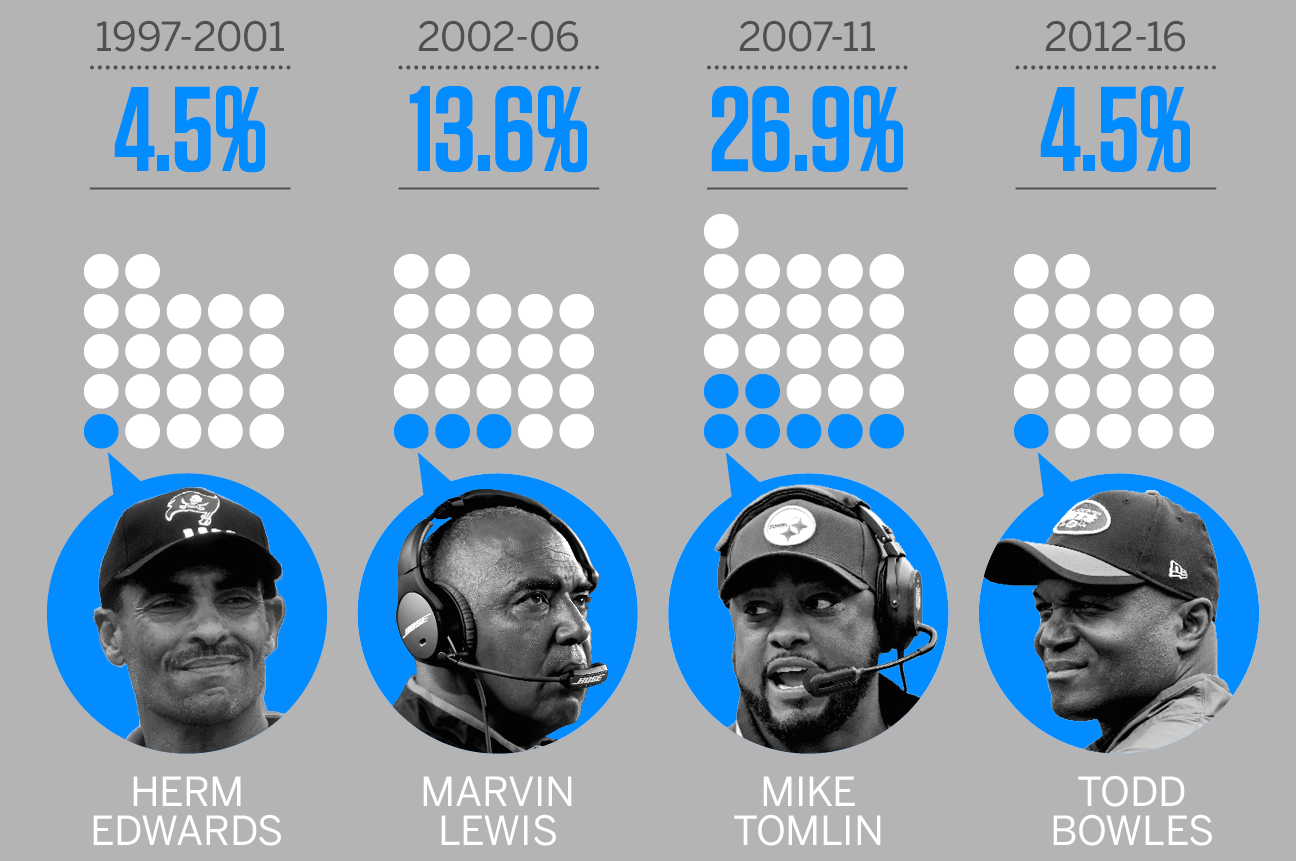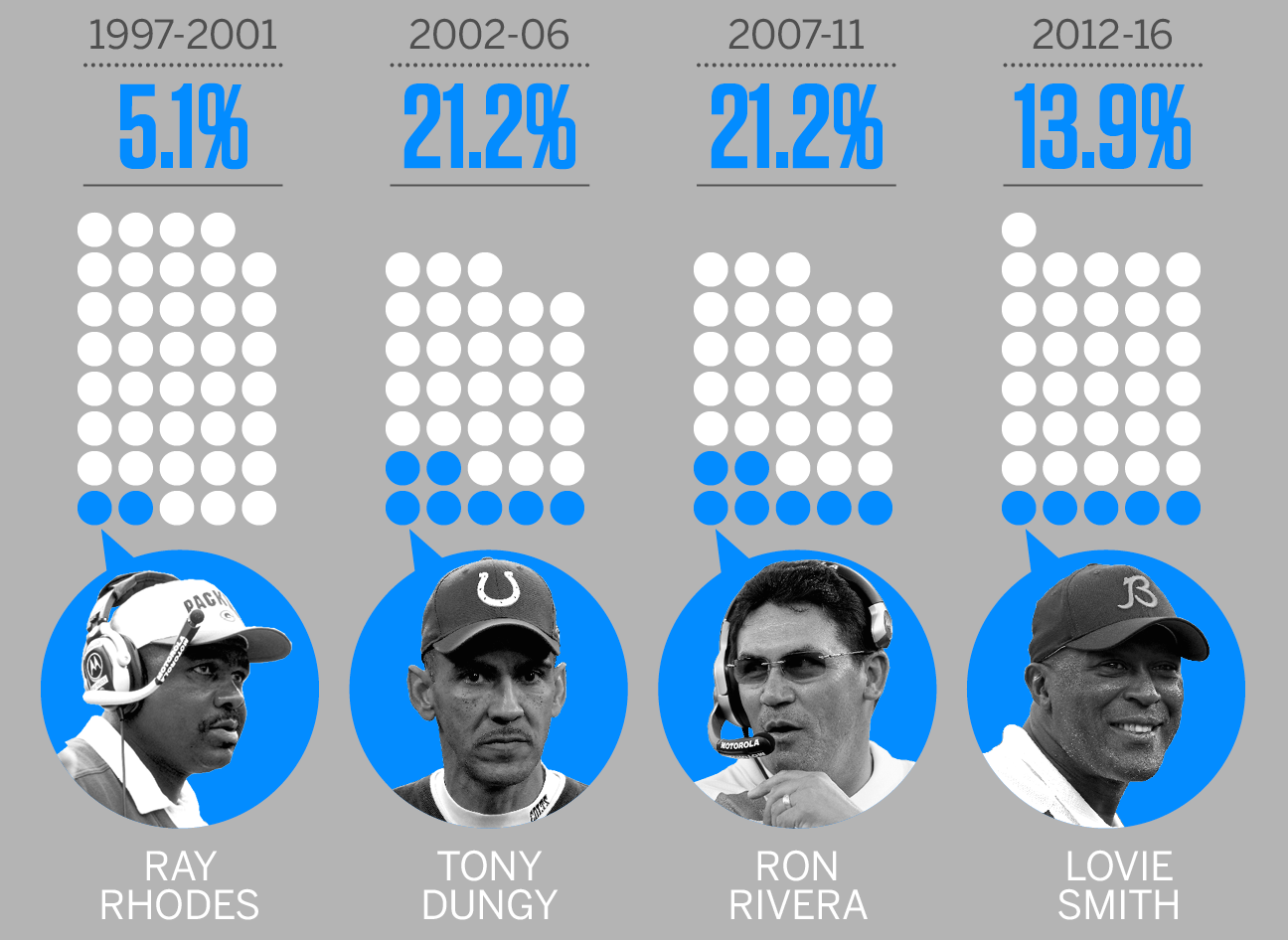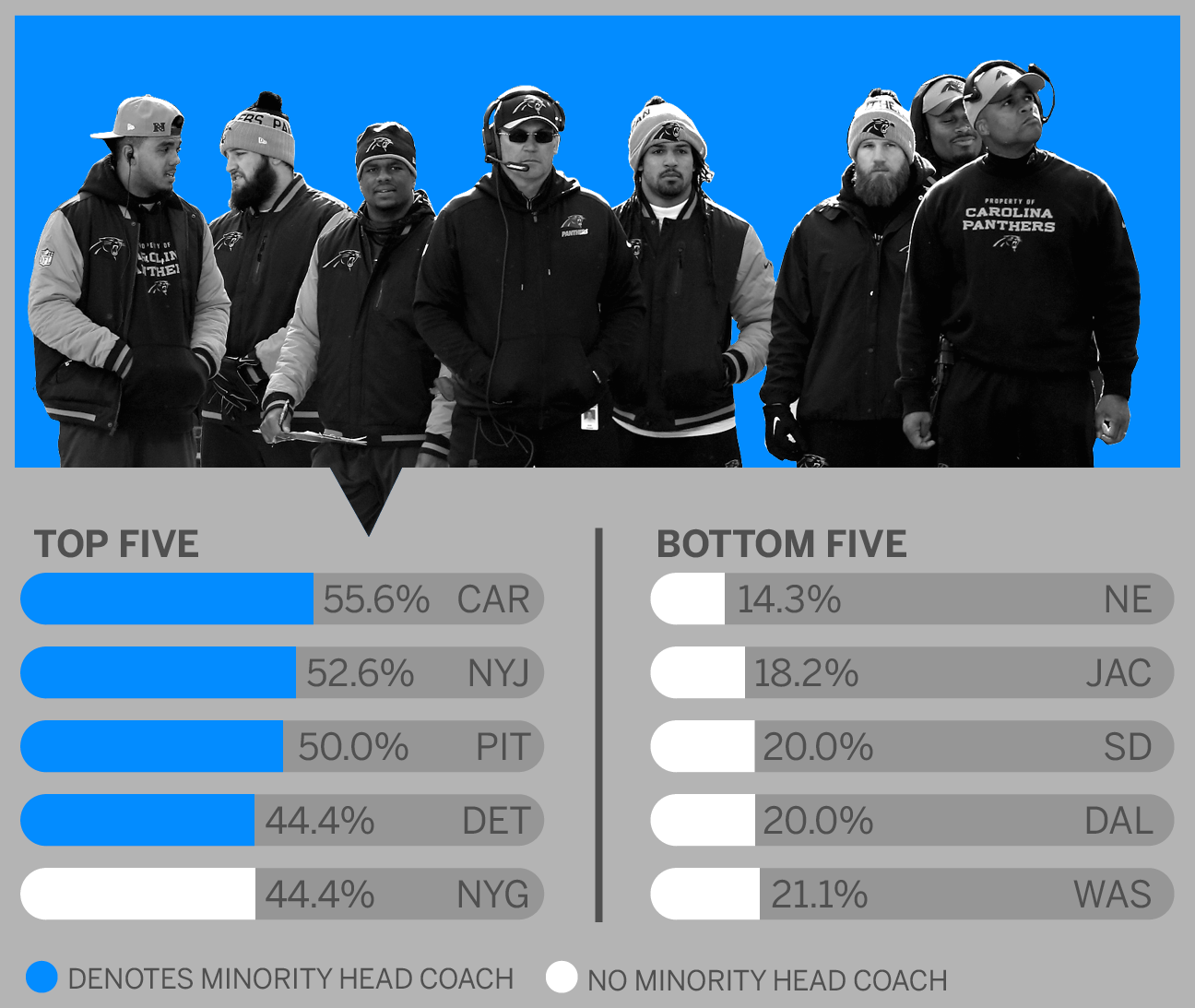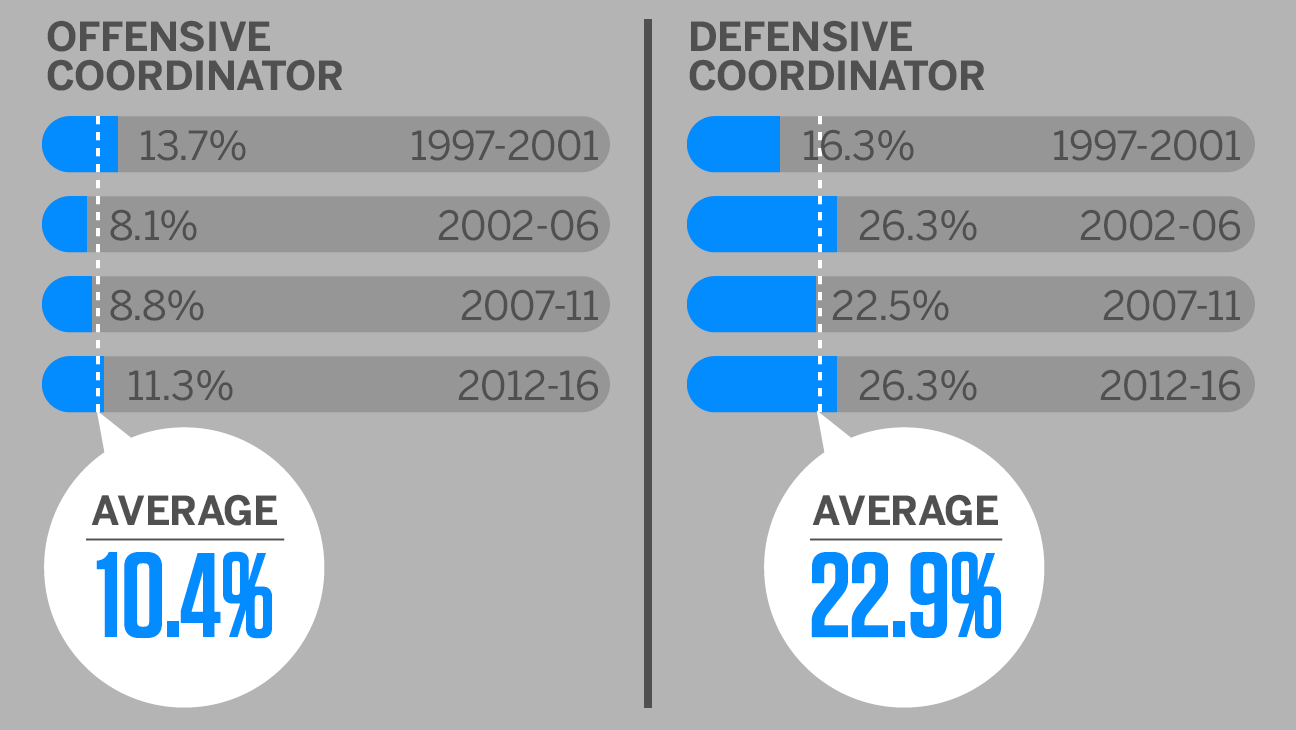THE NFL HAS sponsored programs, implemented the Rooney Rule, counseled team owners and convened committees to address its diversity problem in the coaching ranks. None of it is working. Minority coaches are frustrated. The numbers explain why -- emphatically.
Teams have taken a chance on 21 first-time white head coaches and only one first-time minority head coach, Todd Bowles, over the past five hiring cycles (2012-16). The gap was an identical 21-1 nearly two decades ago, when the New York Jets made Herm Edwards the only first-time minority hire from 1997 to 2001.
It's as though team owners have reverted to previous form, undoing the historic gains driven by Tony Dungy and his coaching tree in the early 2000s.
"Remember the old thing [where they said] you can't win with a black quarterback?" a minority assistant coach asked. "It is almost like that for the coaches."
Various league initiatives -- led by the Rooney Rule, which required teams to interview at least one minority candidate when searching for a new head coach -- continue to address the symptoms, not the underlying issues:
Those are crushing numbers for minorities considering how the hiring game is played: 94 percent of head coaches hired over the past 20 years (133 of 141) had been NFL coordinators, pro head coaches (including interim) or college head coaches previously.
The path to becoming an NFL head coach is clear. It is also largely unavailable to minorities, especially with Dungy in retirement. Dungy and his former assistants accounted for 43 percent of minority head-coaching hires over the past two decades and 39 percent since the Rooney Rule took effect.
"The good thing about the Rooney Rule was not that you had to interview a minority candidate but that it slowed the process down and made you do some research," Dungy said, "but now it seems like in the last few years, people haven't really done what the rule was designed for. It has become, 'Just let me talk to a couple minority coaches very quickly so I can go about the business of hiring the person I really want to hire anyway.'"
Minorities dominate coaching positions for running backs and, to a lesser degree, the defensive secondary, but whites fill the most upwardly mobile spots. Researchers at the Georgetown McDonough School of Business expounded on this subject in a study of coaching staffs from 1985 to 2012. They concluded in part that while teams do hire minorities for positions carrying a lower likelihood for promotion, white coaches gained promotions more readily even when researchers accounted for assistant coaches' initial and current NFL jobs.
Current minority coaches agreed to share their thoughts for this story in hopes they could raise awareness to effect positive change. They requested anonymity because they felt that speaking candidly for attribution could jeopardize future opportunities. Dungy felt no such restrictions in retirement.

Teams have taken a chance on 21 first-time white head coaches and only one first-time minority head coach, Todd Bowles, over the past five hiring cycles (2012-16). The gap was an identical 21-1 nearly two decades ago, when the New York Jets made Herm Edwards the only first-time minority hire from 1997 to 2001.
It's as though team owners have reverted to previous form, undoing the historic gains driven by Tony Dungy and his coaching tree in the early 2000s.
"Remember the old thing [where they said] you can't win with a black quarterback?" a minority assistant coach asked. "It is almost like that for the coaches."
Various league initiatives -- led by the Rooney Rule, which required teams to interview at least one minority candidate when searching for a new head coach -- continue to address the symptoms, not the underlying issues:
- 80 of the NFL's current 85 offensive coordinators, quarterbacks coaches and offensive quality control coaches are white, including all 37 with the word "quarterback" in their titles.
- 23 of 32 defensive coordinators are white.
Those are crushing numbers for minorities considering how the hiring game is played: 94 percent of head coaches hired over the past 20 years (133 of 141) had been NFL coordinators, pro head coaches (including interim) or college head coaches previously.
The path to becoming an NFL head coach is clear. It is also largely unavailable to minorities, especially with Dungy in retirement. Dungy and his former assistants accounted for 43 percent of minority head-coaching hires over the past two decades and 39 percent since the Rooney Rule took effect.
"The good thing about the Rooney Rule was not that you had to interview a minority candidate but that it slowed the process down and made you do some research," Dungy said, "but now it seems like in the last few years, people haven't really done what the rule was designed for. It has become, 'Just let me talk to a couple minority coaches very quickly so I can go about the business of hiring the person I really want to hire anyway.'"
Minorities dominate coaching positions for running backs and, to a lesser degree, the defensive secondary, but whites fill the most upwardly mobile spots. Researchers at the Georgetown McDonough School of Business expounded on this subject in a study of coaching staffs from 1985 to 2012. They concluded in part that while teams do hire minorities for positions carrying a lower likelihood for promotion, white coaches gained promotions more readily even when researchers accounted for assistant coaches' initial and current NFL jobs.
Current minority coaches agreed to share their thoughts for this story in hopes they could raise awareness to effect positive change. They requested anonymity because they felt that speaking candidly for attribution could jeopardize future opportunities. Dungy felt no such restrictions in retirement.
First-time minority head coach hires........From 1997-2016










